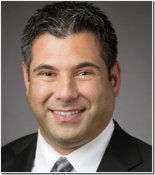Featured Speaker:
Omid Veiseh
Omid Veiseh's laboratory utilizes advanced nano, micro, and macro fabrication techniques in combination with molecular engineering and cellular and molecular biology, to develop platforms of implantable devices tailored for in vivo chemical sensing and delivery of therapeutics. The Veiseh laboratory is particularly interested in developing technologies for the improved management of cancer, Type-1 diabetes, rheumatoid arthritis, and other autoimmune diseases.
New research in Veiseh's laboratory, which is supported by a $2 million grant from the Cancer Prevention and Research Institute of Texas (CPRIT), utilizes a multidisciplinary approach to improve the diagnosis and therapy of pediatric brain tumors. By combining the latest innovations in nanotechnology, chemical engineering, high-throughput synthesis and screening methods, molecular biology, and pediatric brain tumor oncology, his lab can develop a new modality for the treatment of pediatric brain tumors. In the long run, the development of this technology would not only benefit pediatric brain tumor patients, but could also translate towards other debilitating diseases of the central nervous system.
Ongoing research in the Veiseh lab address challenges of pancreatic islet transplantation – an established experimental therapy for the treatment of Type-1 diabetes. Working with collaborators at Rice and laboratories at MIT and Harvard Medical School, Veiseh is engineering a two-component macrodevice system that mimics pancreatic microenvironments while protecting implanted islet cells from recurrent autoimmune attacks. The immunoengineering techniques established by his lab are opening new doors for the long-term protection of pancreatic islet cells that control glucose levels without patients having to take immunosuppressant drugs, as well as opportunities to develop and scale islet production for wide-spread clinical application.
Veiseh's discoveries at MIT helped catalyze the launch of a new biotechnology company, Sigilon Therapeutics, a company he co-founded in Cambridge, Mass. that is committed to commercializing and translating these discoveries to the clinic. Veiseh has authored, or co-authored more than 50 peer-reviewed publications, including those in Nature, Nature Biotechnology, Nature Materials, Nature Medicine, Nature Reviews Drug Discovery, and Nature Biomedical Engineering. Veiseh is an inventor on 20 pending, or awarded patents, many of which have been licensed for commercialization with three separate biotechnology companies. Recent recognitions for his research include being named one of MedTech Boston's 40 Under 40 Healthcare Innovators for 2017, and his encapsulated cell therapies have been listed in the Top 10 Emerging Technologies of 2018 by the World Economic Forum.
Veiseh holds a dual Ph.D. in Materials Science & Engineering and Nanotechnology from the University of Washington. His research under Miqin Zhang, the Kyocera Professor of Materials Science and Engineering, was focused on the development of magnetic nanotechnologies for multimodality molecular imaging, and targeted drug delivery of nucleic acid-based therapies.
![]()
